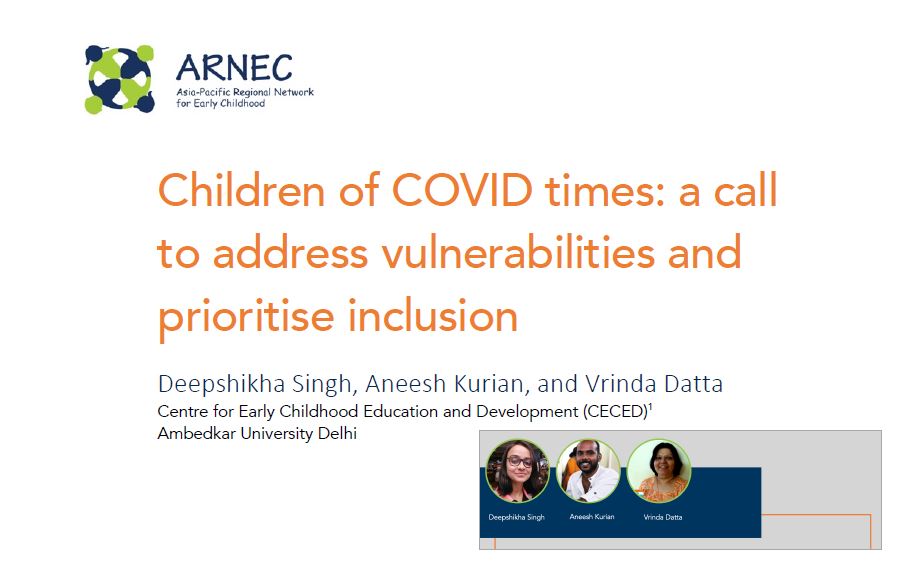ARNEC Conversations: Ambedkhar University Delhi experts call for inclusion, action against vulnerabilities of young children under COVID
Academics from the Centre for Early Childhood Education and Development (CECED), Ambedkhar University Delhi stressed how ‘children of COVID times’ are most deprived and the negative impacts of the pandemic on India’s vulnerable young children.
Deepshikha Singh, Aneesh Kurian, and Vrinda Datta, all faculty members at CECED Ambedkhar University Delhi, shared their views in ARNEC Conversations, an open platform to connect the ECD community in the region with all forms of expression advancing the rights and well-being of children in the Asia-Pacific.
ECD experts Singh, Kurian, and Datta raised conditions that disadvantage young children under the pandemic; in India, households in the lowest income quintile have suffered the most due to lockdown measures and forgone incomes would mean pushing back families and their children to deprivation, child labour, and poverty.
The authors also cited children in poor households at greater risk to domestic abuse and violence and experiencing learning crisis owing to distance learning approaches that fail to consider access to technology and connectivity.
Moreover, the CECED faculty members singled out how the COVID-induced vulnerabilities create a ‘chain of risks’ building on pre-existing conditions and pushing a momentum of disadvantage for young children. The CECED feature ended with priority ECD recommendations to mitigate the adverse impacts of COVID-19 on young children and their families.
The full article of the CECED faculty is found in the CECED Linkedin page at https://www.linkedin.com/pulse/children-covid-times-call-address-vulnerabilities-prioritize-aud/
Type of document : ARNEC Connections, ARNEC Conversations
Country : Region
Year of publication : 2020
Advocacy : Good Health, Opportunity for Early Learning
